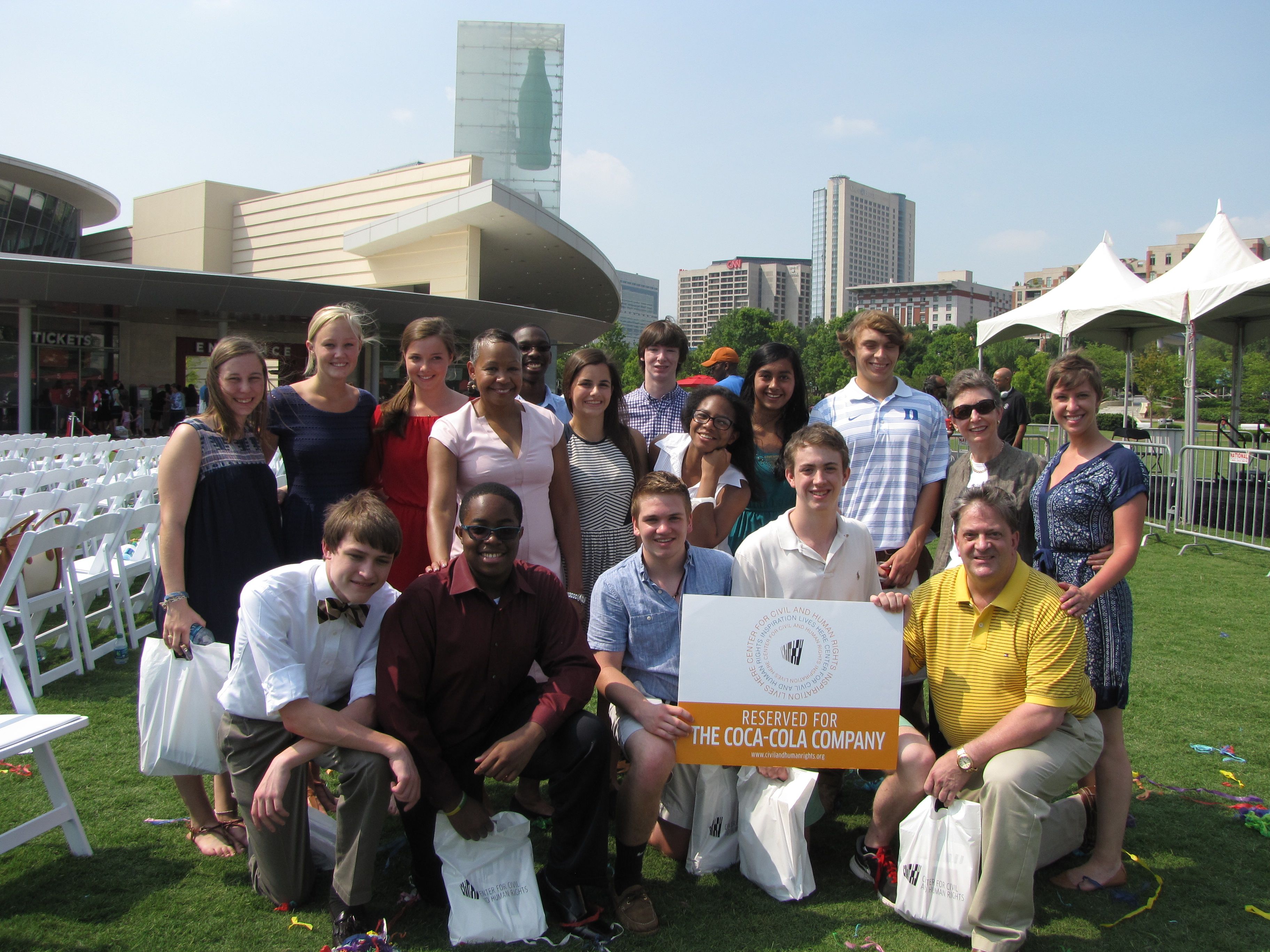Teaching Philanthropy 101: A High School Course
This mini-course was designed to serve as a background for teaching the Philanthropy 101 course, however it also serves anyone who is interested in understanding the nonprofit sector or guiding young people's role in contributing to the world in ways that matter to them.
Philanthropy 101, created at the Westminster Schools in Atlanta and available for free on Learning to Give, is a not-for-credit, month-long summer course that introduces rising seniors to effective giving and informed community service through site visits, meetings with local leaders, readings, research, and self-exploration. It connects students to their local community and, through community-based experiences, helps them become more aware of society’s growing needs and their own interests. The class strives to help students answer the following questions: What is philanthropy? Who am I in relationship to my community? In what ways can I give? How can I make a difference for a cause or issue about which I care?
Mini-Course Author: Luana Nissan
After completing this course (about 45 minutes), the learner is prompted to take a quiz based on the content. Upon successful completion of this quiz, the learner may request a certificate suitable for a professional development portfolio, or as proof of .75 educational clock hours that can be used toward continuing education credit in most states. Please contact your State Department of Education or school district for specific information. Documentation of the completed courses and copies of the certificate are stored under "My Account" of the Learning to Give website where the learner may access (and print) them at any time.
In this learning module, you will gain a foundational understanding about the nonprofit sector and philanthropy and will learn about the core elements of Philanthropy 101. This can help you:
- define philanthropy and the nonprofit sector.
- gain a broader understanding of society and the role of philanthropy and nonprofits.
- better understand ways youth may use time, talent, or treasure to make a difference and gain critical skills for life and career.
This section provides a basic understanding of philanthropy and the nonprofit sector. It is useful background for anyone facilitating youth work with nonprofit partners. We explore civil society structure and the elements of volunteering and giving through the following segments:
- What Is Philanthropy?
- Why Do People Give?
- What Are Society’s Three Sectors and Their Purposes?
- Characteristics of the Nonprofit Sector
- Types of Nonprofit Organizations (sector landscape)
This section describes the elements of the Philanthropy 101 course and its key experiences and content. This course is available for you on this Learning to Give website to use as a model. The core elements of the course are:
- Exploring motives for giving and serving: Stories of philanthropic leaders and professionals
- Visiting and studying types and purposes of nonprofits
- Youth learn about themselves and their community
- Assessing charitable organizations: Building research and analysis skills
- Making a charitable donation to a nonprofit of choice
Site visits to nonprofits show youth a variety of issues and needs in their community and the diverse ways they can make a difference with causes and organizations. Through these experiences, youth learn about their own interest and ways they would like to give back.
The Philanthropy 101 course suggests first-hand experience to observe and hear stories of community and philanthropic leaders using critical skills. Several lessons give youth space and time to develop these key skills themselves:
- Critical Thinking
- Problem-solving
- Collaboration
- Communication
- Listening
- Research and Analysis
- Smart Giving
This quiz contains eight multiple-choice questions based on the mini-course "Teaching Philanthropy 101: A High School Course." If you answer 75 percent correctly, you will have the opportunity to download a personalized certificate. You may revisit the course and retake the quiz, if...
